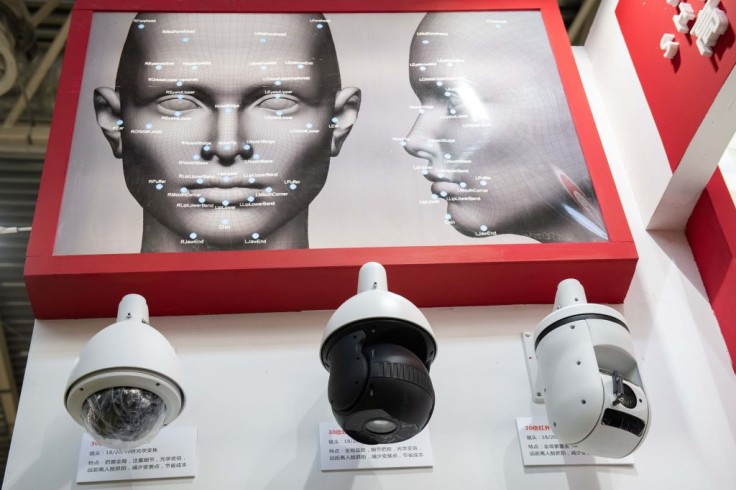
Following the previous announcement about their usage of facial recognition, ID.me CEO Blake Hall gave details that contradicted earlier claims.
Despite the fact that privacy activists are criticizing this, people must note three advantages that it brings, including advanced banking experience.
ID.me CEO Admits Usage of Facial Recognition System
Last year, the Internal Revenue Service has modified how customers sign in and authenticate their identity for some IRS online services through a mobile-friendly system that depends on trusted third parties and delivers an enhanced user experience.
This new procedure is part of the IRS's Identity, Credential, and Access Management (ICAM) programs, which aim to give taxpayers more options for verifying their identity and gaining access to IRS resources.
To ensure that taxpayers have secure access to IRS resources, the IRS recently partnered with ID.me, a reputable technology provider of identity verification and sign-in services.
In addition to this, ID.me CEO Blake Hall posted a blog post on Wednesday, Jan. 26, through his LinkedIn account indicating that the company use a technology known as one-to-many face recognition, which compares a targeted face to a database of other known faces to discover possible similarities.
This contradicts the company's earlier public assertions, including a recent press release in which Blake Hall said that the company only utilized a less powerful version of facial recognition called as one-to-one face matching, as per The Verge.
"Our 1:1 face match is comparable to taking a selfie to unlock a smartphone. ID.me does not use 1:many facial recognition, which is more complex and problematic," CyberScoop stated, who first spotted the post.
As a result of a reluctance to provide details about operational procedure, which could be abused by thieves, Hall appeared to confess that his previous declaration was incorrect in the new statements.
Hall wrote in the LinkedIn post that ID.me uses a specific "1 to Many" check on selfies tied to government programs targeted by organized crime to prevent prolific identity thieves and members of organized crime from stealing the identities of innocent victims en masse.
Read Also: [RUMOR] eSim-Only iPhone 14 Variant to Come? Apple Also Planning a Dual eSim/Physical Variant
In relation to this, CyberScoop also reported that privacy activists criticized the company stating that consumers are at risk from both types of facial recognition.
Aside from multiple studies showing that the technology is less reliable on non-White skin tones, accumulating biometric data can pose a significant security concern.
Despite the fact that this feature poses a significant security concerns, it is worth noting that there are still some advantages that facial recognition offers.
3 Use and Advantages of Facial Recognition
For those who do not know what facial recognition is, Tech Business Guide stated that it is a type of biometric software that may use facial characteristics to compare and analyze patterns to identify or verify a person's identity.
Most of the time, the technology is utilized for security, but other applications are gaining traction as well.
As a result of its potential for a wide range of applications in law enforcement as well as other businesses, facial recognition technology has gained a lot of attention.
Through this, Tech Business mentioned three advantages of facial recognition.
3. Improved Public Security
Facial recognition is being used tyo catch burglars, thieves, and trespassers easily.
Through this method, private and public CCTV camera networks can be analyzed in real-time.
The ability to track down criminals isn't the only use of the technology. For instance, it also helps people to locate missing children and elderly people.
2. Enhanced Banking Experience
There is still potential for improvement in the way banks use one-time passwords to access accounts or authorize transfers, despite the fact that they have become more complex.
Biometric identification using facial recognition technology is one option.
User could authorize transactions simply gazing at their smartphone or PC instead of those annoying one-time passwords.
Another advantage of facial recognition is that it allows for biometric internet banking.
Through facial recognition software, there are no passwords that hackers may compromise. Even if hackers obtained personal photo database, it would be of little value, as "liveness detection," prevent utilizing them for impersonation purposes.
1. Attendance System
Time fraud is still one of the most widespread work ethics breaches on factory floors around the world.
The vast majority of employees are truthful. Even yet, a small percentage of employees use buddy favors from coworkers or security personnel to avoid work (and still get paid).
Time fraud is not just bad for businesses, but it's also bad for good employees.
To check in for work, everyone must pass through face-scanning machines. From here until time out, workers will be charged for their rendered time through facial recognition.









